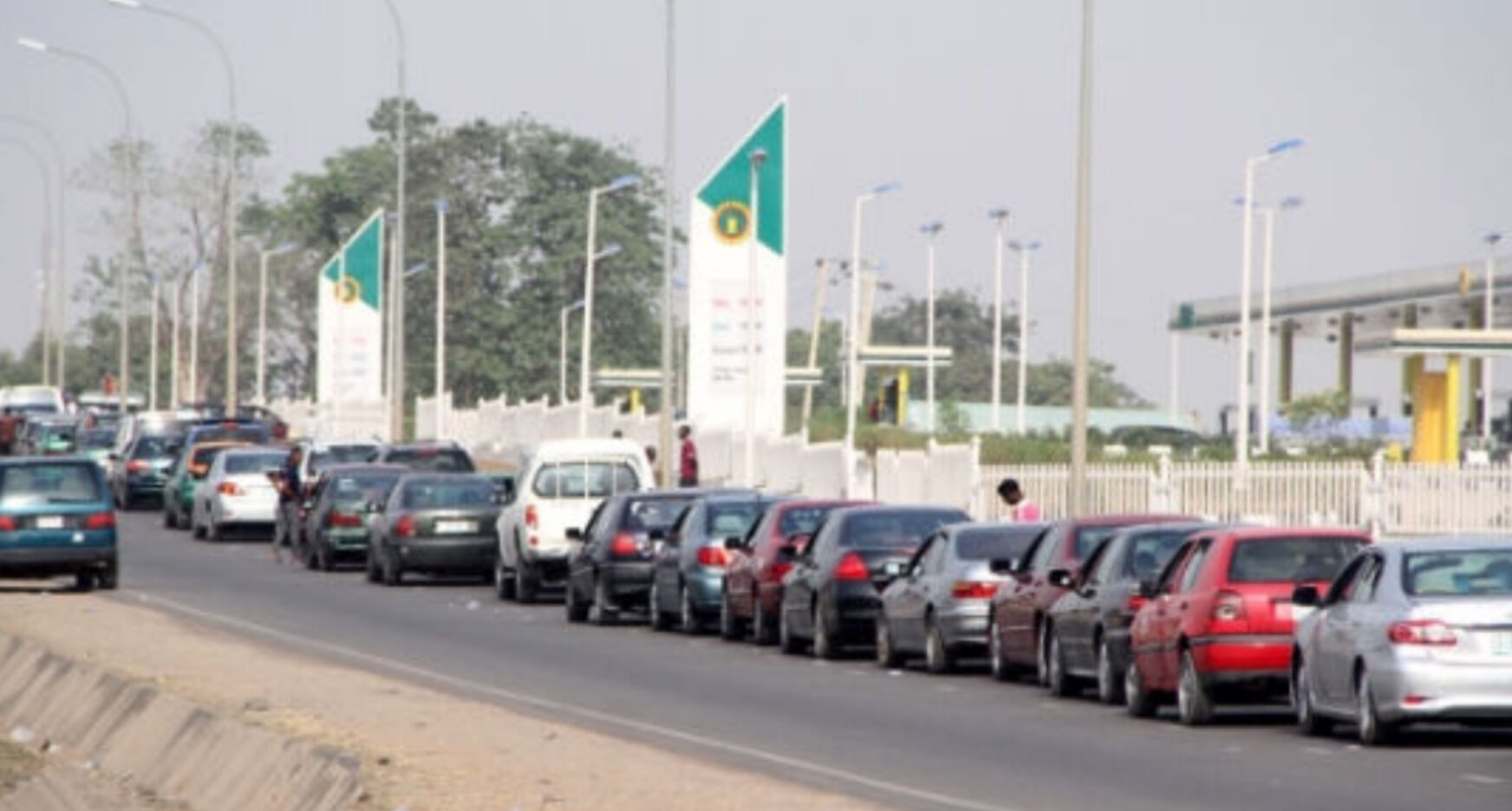While there were queues at some filling stations visited, other stations were under lock and key as commuters and commercial drivers formed long queues at fuel stations in different parts of the city Friday.
The filling station, Fynefield, at Apo Resettlement, had locked its gates preventing new vehicles from coming in.
Queues at any of the retail outlets of the Nigerian National Petroleum Company (NNPC) Limited are usually long on a normal day because the outlets sell fuel for N617 per litre, lower than most other outlets where the price can be as high as N680.
But at the NNPC station the queue has since Thursday gone worse causing traffic in the Central Business District Area, Apo, around Herbert Macaulay Way.
Other filling stations in Banex, Apo, Kubwa, and Lugbe areas of the city sold fuel at prices ranging from N617 to N680.
Nipco filling stations in Banex and Wuse 2 had long queues Friday afternoon, as well as NNPC Ltd stations at Kubwa Express and Arab Road.
As of Friday morning, NNPC Ltd and Mobil filling station at Airport Road all had long queues.
At Life Camp, a young man was seen pushing his motorcycle to a park from the opposite side of AA Rano filling station, Dape, just before Karmo Market. The man, Haruna Ismail, said he had been working for the day with the 3 litres of fuel he bought from the black market.
Black marketers have since taken advantage of the situation as they now move around crowded filling stations, selling fuel at prices ranging between N1,000 to N1,500 per litre.
However, the spokesperson of the NNPC Ltd, Olufemi Soneye, told this newspaper that there is no cause for alarm.
“There is no Scarcity, we have abundant products and there is no cause for alarm,” he said.
In February, fuel scarcity hit Abuja as the Nigerian Association of Road Transport Owners (NARTO) directed its members to withdraw services.
NARTO, in a letter dated 15 February and signed by its National President Othman Yusuf, instructed its members to stop petroleum product loading activities starting from Monday, 19 February. This decision was made due to the industry’s high operational costs.
The association expressed concern about the steep cost of diesel needed to fuel its trucks for transporting petroleum products across Nigeria. It highlighted the challenging economic conditions, stating that continuing business operations has become unsustainable.
In the letter, NARTO appealed for support and understanding from the Nigerian Union of Petroleum and Natural Gas Workers (NUPENG) and its members. Despite efforts to negotiate fair freight rates with industry authorities, including the Major Energy Marketers Association of Nigeria, NARTO stated that these efforts had not yielded positive outcomes.
Consequently, the NARTO National Executive Council (NEC) decided that all members should withhold their petroleum trucks from loading activities starting from 19 February.
It later directed its members to resume petroleum loading activities after some agreements were reached.

